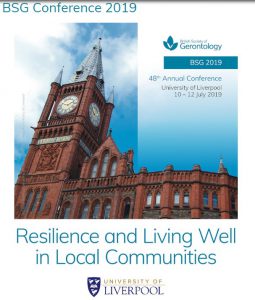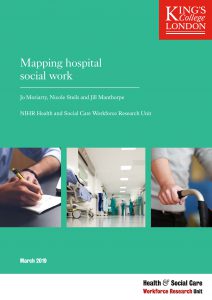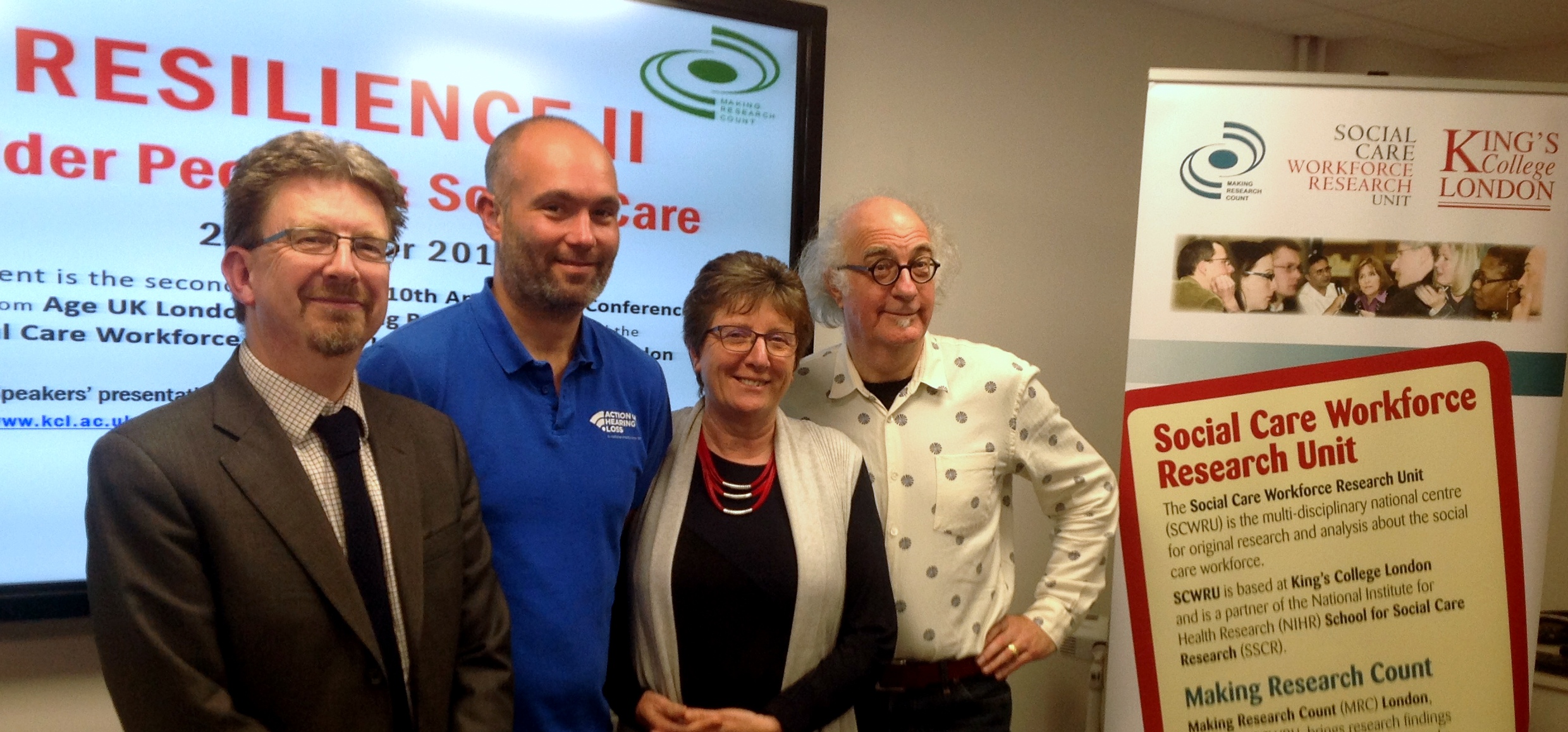John Woolham is Senior Research Fellow at the Social Care Workforce Research Unit, King’s College London. (592 words)
Last week I was invited to speak at the launch of ‘Help at Home – use of assistive technology got older people’ a review of current research evidence published by the National Institute for Health Research Dissemination Centre. My presentation discussed some of the findings from research I’d done last year as part of the NIHR School for Social Care Research funded UTOPIA project, which gets a mention in the review.
This review is timely and welcome. There has been considerable investment by local authorities in assistive technology and telecare at a time of unrelenting austerity. The research evidence to support this investment offers mixed messages, and local authority commissioners don’t have access to research findings, or even if they did, the time to read them. Worse, at least some of the information about telecare’s impact that is accessible is misleading. Local authorities are also under pressure: increasing demand for care and support, particularly from growing numbers of older people, and cuts to adult social care budgets that are unprecedented in their scale.
Is assistive technology and telecare the solution? Local authorities are keen to use it to promote independence, keep people living safely in their own homes and to reduce burdens facing family carers, which will, of course, also save money. These are all worthy objectives, but as the review suggests, more likely to be achieved by local authorities that pay good attention to the infrastructure within which assistive technology is used, rather than just the devices themselves.
The review makes the important point that much research in this field to-date appears to have focused on ‘high end digital technology’ rather than evaluating the impact of more basic technologies to help with everyday life; and more focus on the development of prototype technologies than real world testing. There are also some real challenges laid out for local authorities or other organisations that provide telecare services. For example, it reflects concerns by older people, highlighted in one international study that technology will be used as a substitute for hands on care. This is precisely what is happening in many local authorities in England at the present time. Another challenge from research is the suggestion that assessment and installation are seen as sequential one-off events (‘plug and play’) when getting the best out of it means seeing these as on-going processes, and that even simple technologies should be seen as a ‘complex intervention’. How does this compare with practices in hard pressed local authority adult social care departments at the present time?
Anyone working in this field or who is using, or thinking of using, technology, should find this report contains valuable insights, even if some of them are challenging. Research reviews can be dry-as-dust, of interest only to the scholarly or the assiduous and with little of value to care professionals. This review is readable and relevant. It offers clear summaries of current research evidence and there are also clear messages about what needs to happen for telecare to make an effective, optimal contribution towards the care and support of older people. It deserves to be widely read and for key messages to be addressed in practice.
John Woolham is Senior Research Fellow at the Social Care Workforce Research Unit, King’s College London. John’s presentation from the day.
The author’s own work, cited here, is independent research funded by the National Institute for Health Research School for Social Care Research. The views expressed in this blog post are those of the author and not necessarily those of the NIHR/SSCR, NHS, the National Institute for Health Research or the Department of Health and Social Care.
 Kritika Samsi, Research Fellow at the NIHR Health & Social Care Workforce Research Unit, introduces the findings from the optimal time study, which she led. (629 words)
Kritika Samsi, Research Fellow at the NIHR Health & Social Care Workforce Research Unit, introduces the findings from the optimal time study, which she led. (629 words) HSCWRU researchers enjoyed two and a half days of stimulating presentations, symposia and keynote speeches at the British Society of Gerontology’s (BSG) 2019 Annual Conference held this year in Liverpool. The 48th BSG annual conference was entitled Resilience and Living Well in Local Communities and took place from 10 to 12th July at the University of Liverpool.
HSCWRU researchers enjoyed two and a half days of stimulating presentations, symposia and keynote speeches at the British Society of Gerontology’s (BSG) 2019 Annual Conference held this year in Liverpool. The 48th BSG annual conference was entitled Resilience and Living Well in Local Communities and took place from 10 to 12th July at the University of Liverpool. Visiting Research Fellow at the NIHR Health and Social Care Workforce Research Unit,
Visiting Research Fellow at the NIHR Health and Social Care Workforce Research Unit, 


